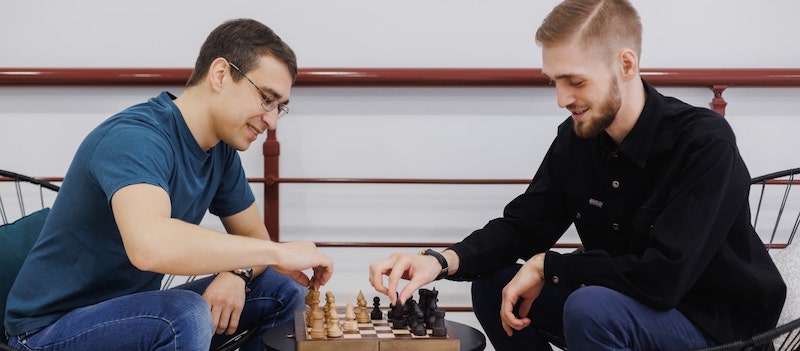Select a language

Soft skills that will help you fight anxiety
Soft skills that will help you fight anxiety
A lingering sense of uncertainty, the inability to control the situation and make long-term plans is fertile ground for anxiety and panic. Therefore, we decided to collect and share some important soft skills that will help you cope with anxiety and support yourself.
1. Critical thinking
Critical thinking is the ability to take a balanced approach to the processing and consumption of information. We are constantly in the information flow. It is easy to get lost in it, lose focus or become a victim of manipulation. The skill helps to check information, look for the relationship between facts, think rationally, make the right decisions and formulate strong arguments.
How to develop:
Develop logic and observation. Try to determine the role models of behavior of colleagues at work. Observe how they react to incoming information. Learn to ask questions. Apply critical thinking techniques to the news.
What books to study about critical thinking:
- Oscar Brenifier "Let's Discuss"
- Diane Halpern "Psychology of Critical Thinking"
- Vincent Ruggiero "Beyond emotions and feelings". A Guide to Critical Thinking
- Eric Vance "The Suggestible Brain: How we Deceive Ourselves and Heal"
- Tom Chatfield "Critical Thinking. Analyze, doubt, form your opinion"
2. Working in uncertainty mode
The modern world is described as a world of instability, uncertainty, complexity and ambiguity, and we will have to live in it. Working in uncertainty mode is the ability to quickly respond to changes in the conditions of the task, make decisions and manage your resources. We need flexibility and the ability to adapt quickly to changes.
How to develop:
It is necessary to develop independence. Come up with ways out of various difficult situations, try approaches that have not been used before. Choose what suits you in order to overcome anxiety.
What books to study about working in uncertainty mode:
- Tim Harford "Chaos. How clutter changes our lives for the better"
- Nick James "Attention to the most important. From stress and chaos to meaningfulness and concentration"
- Eric Duke "The betting Principle. How to make decisions in conditions of uncertainty"
3. Decision-making
Decision-making is the ability to consciously choose the best solution from possible options. This skill helps to achieve your goals quickly and with maximum benefit. After all, it is we who make the decision on how to overcome anxiety correctly and not become a hostage to an information attack.
How to develop:
To develop the skill of decision-making, you need to learn to see the maximum number of options, correctly prioritize in each specific situation and choose the best possible.
What books to study about decision-making:
- Chip Heath and Dan Heath "The Trap of Thinking. How to Make Decisions You Won't Regret" and the book "Switch"
- Adam Furner "Decision-making. Free yourself from stereotypes and manage your life"
- Tal-Ben Shahar " What will you choose? Decisions on which your life depends"
- Dmitry Chernyshev "How people think"
4. Emotional intelligence
Emotional intelligence is the ability to understand emotions, motivation, intentions of oneself and other people and manage all this. The skill helps to solve practical problems, make decisions and build communication with other people.
How to develop:
To improve emotional intelligence, you need to develop empathy towards yourself and other people. Observe your own emotions and the emotions of others. Think about what they are connected with, and how they affect others. Try to control yourself and make better decisions based on observations.
What books to study about emotional intelligence:
- Daniel Goleman "Emotional Intelligence. Why It Can mean More than IQ" and the book "Emotional Intelligence at Work"
- Travis Bradberry and Gene Greaves "Emotional Intelligence 2.0"
- Susan David "Emotional Flexibility"
We hope that our advice will help you worry less about trifles, take more care of your morale and will not allow bad thoughts to linger in your head for a long time.
